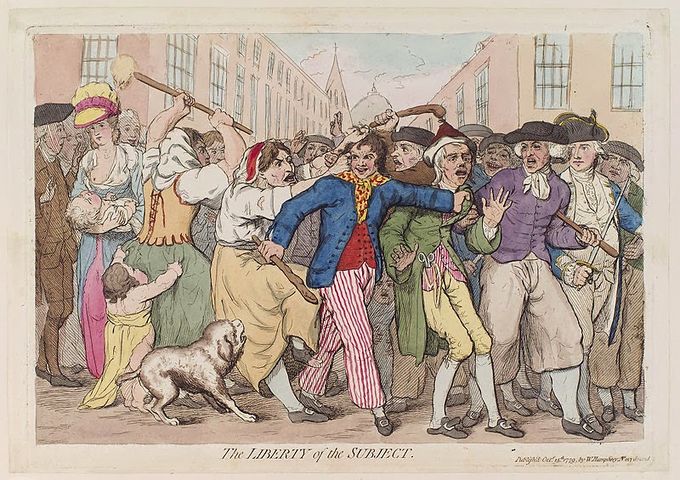Annotation:Trip to the Tender
X:1 T:Trip to the Tender M:6/8 L:1/8 R:Jig B:William Vickers’ 1770 music manuscript collection (Northumberland), B:No. 214, p. 50 B: http://www.farnearchive.com/show_images.asp?id=R0305202&image=1 Z:AK/Fiddler’s Companion K:D DFA dAF|G2E EFG|DFA dAF|E2A, A,CA,| DFA dAF|G2E Efg|afd gec|d3 D2:| |:f/g/|afd afd|g2e efg|afd afd|e2A Ace| afd afd|g2e efg|afd gec|d3 D2:|]

This item appeared in The Times of London on 23 October, 1787, in a rare case of 'turnabout':
On Saturday evening a pretended press-gang consisting of five men stopped a man in Long-lane as he was going home with his wages, and under pretence of impressing him for the King's service, were hauling him away; the man, however, upon producing half a guinea, was permitted to go away. He having watched the party into a public house, went to Horsleydown, and brought a real gang with the proper officer, who surprised the sharpers regaling on their booty, every one of whom were carried on board the tender at the Tower.
Recent scholarship[1] suggests that impressment of men for the navy during late 18th century wartime was seen by the general population, including sailors, as unloved, but a necessary requirement. According to a survey of muster books, impressment made up 16% of the recruits for 1793-1801 as a whole[2]. The 'myth' of the brutal and tyrannical press gang may stem from heated rhetoric of the 1830's from politicians and their supporters.
A variant, somewhat distanced from the 18th century versions, was entered into the mid-19th century music manuscripts of the Hardy Family of Dorset.

